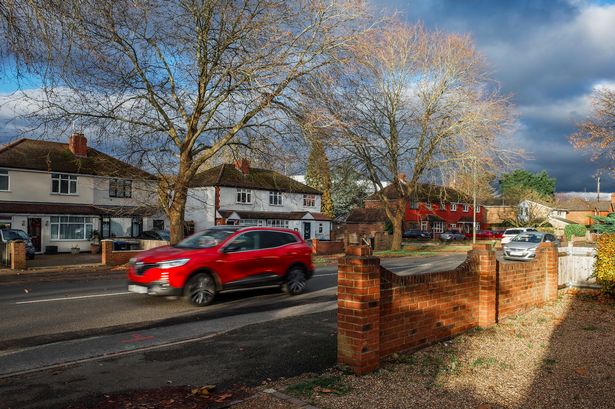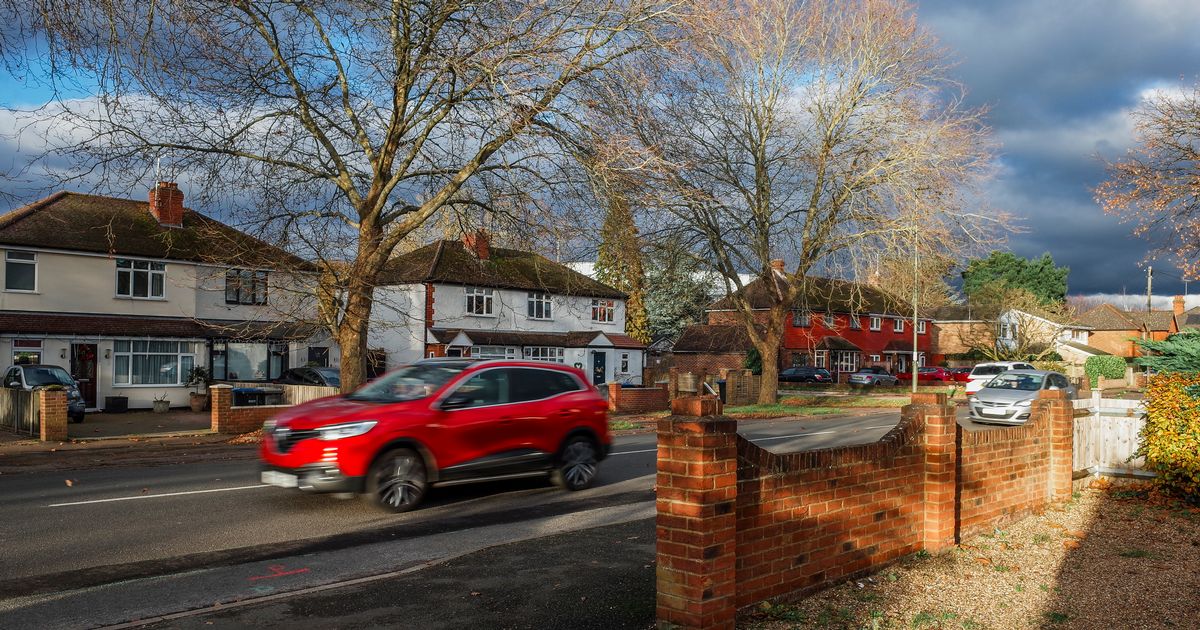Officers have explained what you can do within the law – and if they will help you People parking across your drive is very annoying – for example when they do the local school run(Image: Getty)
People parking across your drive is very annoying – for example when they do the local school run(Image: Getty)
Finding someone parked across your driveway is utterly infuriating – particularly because you’re completely stuck.
While it might be a parent doing the school run, it’s still maddening – though thankfully if it becomes a regular occurrence or goes on for ages, the authorities can step in.
The question was posed on the Ask the Police website, run by the Police National Legal Database, where the frustrated person queried: “Someone has parked their car and it is blocking my driveway. What shall I do?”.
The initial step suggested by the police is to ask around to see if neighbours recognise the vehicle’s owner to sort out its removal, especially if entry to your own driveway is blocked. In certain areas, local councils might be able to help too.
The online guidance notes: “In most areas local councils have now taken on responsibility for enforcing parking provisions under what is known as Civil Parking Enforcement (CPE). Under CPE, it’s an offence to park a vehicle that blocks a dropped kerb driveway. You can check if your local council has taken on CPE via the link here.”
It added: “If your council has taken on CPE, you will usually need to report vehicles that are obstructing a dropped kerb directly to them – you can contact them via the link here.”
The Metropolitan Police has issued a statement addressing the issue of blocked driveways, acknowledging the frustration it can bring. The force said: “If someone has blocked your driveway so you can’t drive in, we appreciate this can be very frustrating.”
Should residents find themselves unable to sort the issue directly, the police advise asking for local council assistance: “If this doesn’t work, please contact your local council. If a person has blocked your driveway and is preventing you from getting your own vehicle out, we may be able to help. You can report antisocial behaviour online.”
They recommend attempting to resolve matters peacefully, suggesting: “If you can find the owner of the vehicle, we’d first recommend asking them politely to move it. If you can’t find them, try leaving a note on their windscreen. After all, they may not realise they have caused a problem.”
But what if someone actually decides to park ON your driveway itself?
The RAC has examined this scenario – which can affect residents living near locations such as schools, airports and hospitals – and the response is deeply troubling.
Since it’s not on a public road, the council lacks any authority, meaning any recourse would need to be through civil proceedings.
The RAC explained: “If your vehicle is on your driveway and another car is parked on a public highway and blocking your access out of your driveway, the council has the power to act. But if that other car is on a drive, it’s technically on private property – and the council has no authority to remove it.”
Regarding roadside parking, the RAC continues: “It is perfectly legal to park outside someone’s house, unless the vehicle is blocking a driveway or a wheel is over a dropped kerb. Where no parking controls exist, drivers do not have an ‘automatic spot’ for parking outside their homes.”
Police forces have confirmed they will not intervene in such situations.
One constabulary explained: “If someone parks their vehicle on your driveway without your permission, this is trespassing. This is a civil dispute and not something we can help you with. If it happens repeatedly with the same person / vehicle you might want to seek advice from Citizens Advice or a solicitor, but we would always recommend having a polite word with the driver first, as there may have been a simple misunderstanding.”
The RAC confirmed: “While there is no criminal law against the indecent act of someone parking on your driveway without your consent, your driveway is part of your property so by driving onto it the person is committing an act of trespassing.
“Trespassing, however, is classed as a civil offence not a criminal offence, meaning the police don’t have the power to make an arrest.”
Should a motor be deemed abandoned, local authorities are obligated to remove it irrespective of whether it sits on public or private property, though if the car maintains current tax, insurance, MOT and poses no safety risk, councils remain powerless to act.
The RAC warns there exists no ‘quick fix’ for motorists occupying driveways temporarily, with court proceedings potentially proving lengthy.
The organisation advises: “The best thing to do on a one off is to keep calm and don’t let the situation escalate, never take the law into your own hands and do not stoop to revenge tactics that could get you prosecuted also.”
If the issue persists, homeowners can seek legal recourse. A solicitor could obtain permission from a civil court to identify the vehicle’s legal owner, and a judge could order its removal.
Alternatively, you could lodge a legal claim for nuisance behaviour, arguing that the driver is infringing on your enjoyment of your property. However, the RAC cautions: “You should be aware, however, going through the courts, can be a long and potentially costly process if you do not have legal expenses insurance.”
While it might be tempting to take matters into your own hands and have the vehicle towed, the RAC advises against this: “This is not advised by the police. If the car gets damaged, you could be liable to pay for damages.”
The Ask The Police website echoes this sentiment, stating: “Don’t damage/clamp the vehicle or have it removed by a third party for destruction or storage without first seeking legal advice. If you do any of these things, you may commit a criminal offence or the owner may pursue a civil action against you.
“Under no circumstances would we advocate you merely pushing the vehicle on to a road and leaving it there as you may commit a number of offences.”
